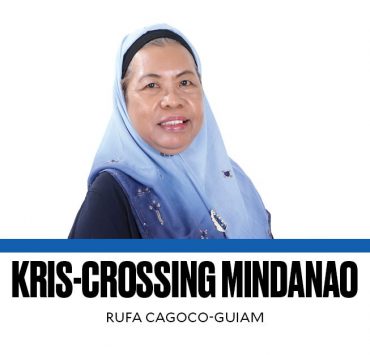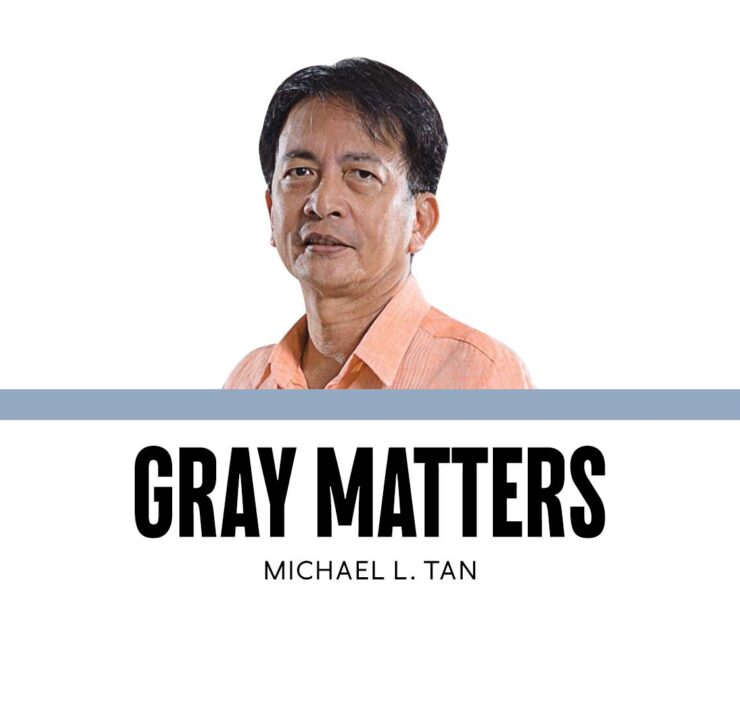Liberation theology (1)

T he death of Peruvian theologian Fr. Gustavo Gutiérrez last week brought many tributes in newspapers throughout the world, not something you usually expect from a theologian. Locally, his death passed almost unnoticed except for articles in The Varsitarian (the newspaper of the University of Santo Tomas) and a post by the Student Christian Movement.
Not much, but enough to make me find some joy, mainly that some young Catholics (and Christians?) seem to know who he was.
I write this column partly as a social scientist who feels the history of Latin America. In addition, the Philippines, would not be complete without recognizing Gutiérrez’s contributions and the theology of liberation. And I hope that Gutiérrez’s work, as well as those of other liberation theologians, will continue to exert influence.
It was the 1960s (see my brain’s gray matter at work?) and the world was gripped by social ferment. The word “development” had been thrown around by governments and international agencies with hopes of a brave new world where there would be no more hunger, no more poverty.
But social unrest was on the rise throughout the world, most visibly represented in the second half of the 1960s by students—the baby boomers born after World War II and who had benefited from peace and the trappings of prosperity and yet were pouring out of the universities to demonstrate in the streets. The students, Filipinos included, could not turn a blind eye to growing inequities, made all the more disturbing by the affluence of a few.
The reforms after Vatican II (1962-1965) gave more space for Catholics to become more socially engaged. In Catholic countries, mainly in Latin America and, across the Pacific, in the Philippines, the students found common causes among the religious, including those still in formation, i.e., studying to become priests and nuns and were seeing poverty first-hand in their parishes.
Even the mainstream Catholic institutions were taking notice. Two parallel historical milestones took place, two years apart. In 1968, the Second Episcopal Conference of Latin America was held in Medellin, Colombia, with strong statements calling for a “preferential option for the poor.” In Asia, Manila hosted the first Federation of Asian Bishops Conference (FABC) in 1970, coinciding with the visit of Pope Paul VI. I am not sure here but I think it was in this FABC that a call was made for a preferential option for the “poor, deprived, and oppressed,” a phrase still in use almost six decades after, sometimes shortened to the “marginalized,” the Filipino words “nasa laylayan” popularized by Leni Robredo when she ran for president.
It was in 1971 when a book by a little-known Peruvian theologian, about five feet tall, was published, first in Spanish and, shortly after, in English. Gutiérrez wrote about how God speaks through the poor, calling on Christians to become more involved in political and civil affairs. Poverty was the result of social sin or structures that perpetuated inequity.
The English edition gained a following among the religious and some lay people who were working with the Catholic social action groups. I like to say, partly tongue-in-cheek, that my parents’ fears of activism at the University of the Philippines (UP) were somewhat exaggerated because the stronger influence came from Catholic social action friends. And no, they were not “socdems,” labeled by grim and determined UP activists as “reformists” and even “clerico-fascists.”
No, one of the more radical groups that emerged at this time, in 1972 shortly after martial law, was Christians for National Liberation, whose members speak of Gutiérrez’s “theolib” book as a strong influence.
I remember the many debates that exploded out of liberation theology, including accusations of “communism” within the Catholic Church itself. Families were torn by the debates around secular activism as well as by arguments from their erstwhile pious children now challenging traditional approaches to poverty. (I found an old photograph from Pope Paul IV’s 1970 visit, with student activists wielding placards that called on the Catholic Church to become a church of the poor. Others resorted to sloganeering: “Down with the clerico-fascists!”
Theolib translated into grassroots activism, with official support from Catholic Church officials in the Philippines and in Latin America to set up “basic Christian communities” (Comunidades Eclesiales de Base in Spanish) that included religious activities as well as more secular activities like adult literacy and health care and community organizing.
Gutiérrez called for more social analysis, which was what caused so much apprehension among conservatives. I remember Sunday family reunions with uncles and aunts fuming about sermons from progressive priests. “What social sin?” an aunt ranted, “whatever happened to immorality?”
(To be continued)
—————
mtan@inquirer.com.ph


















